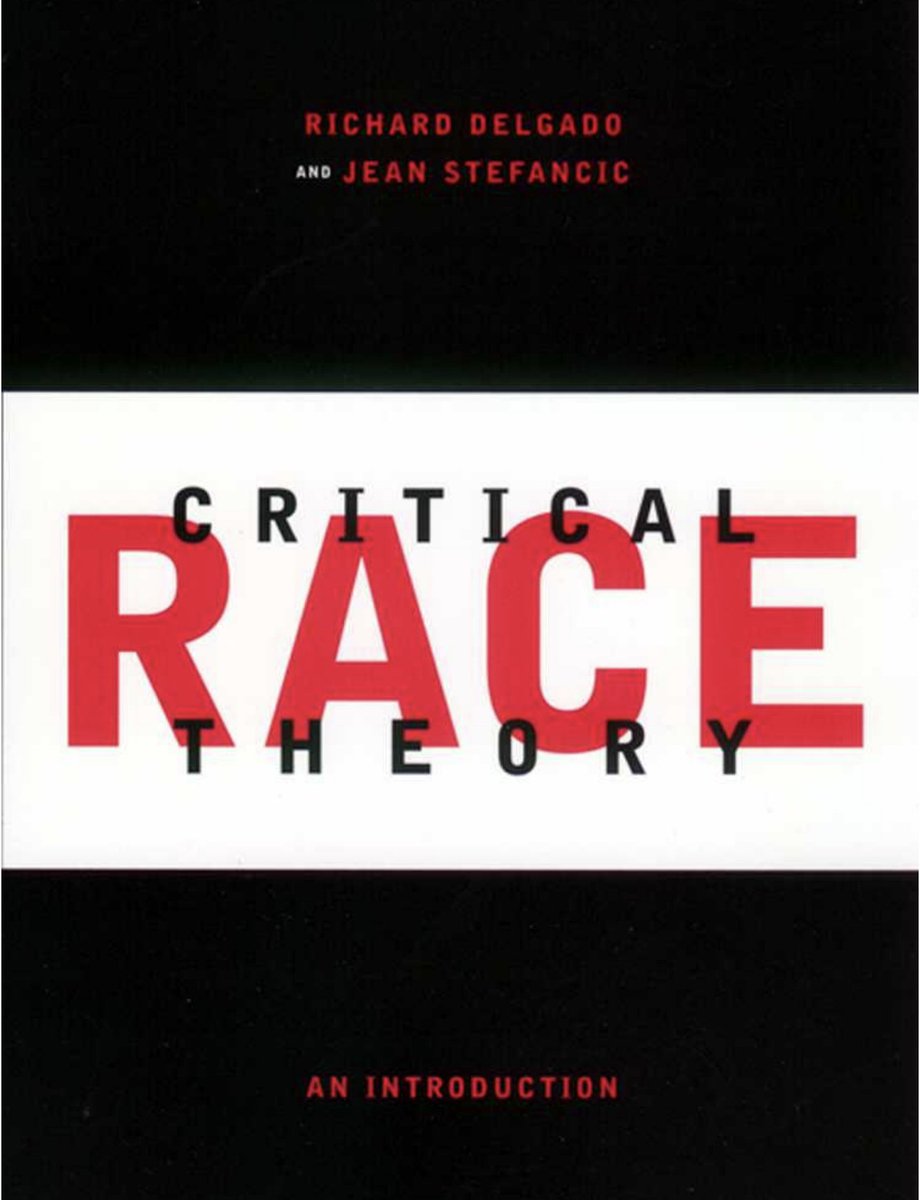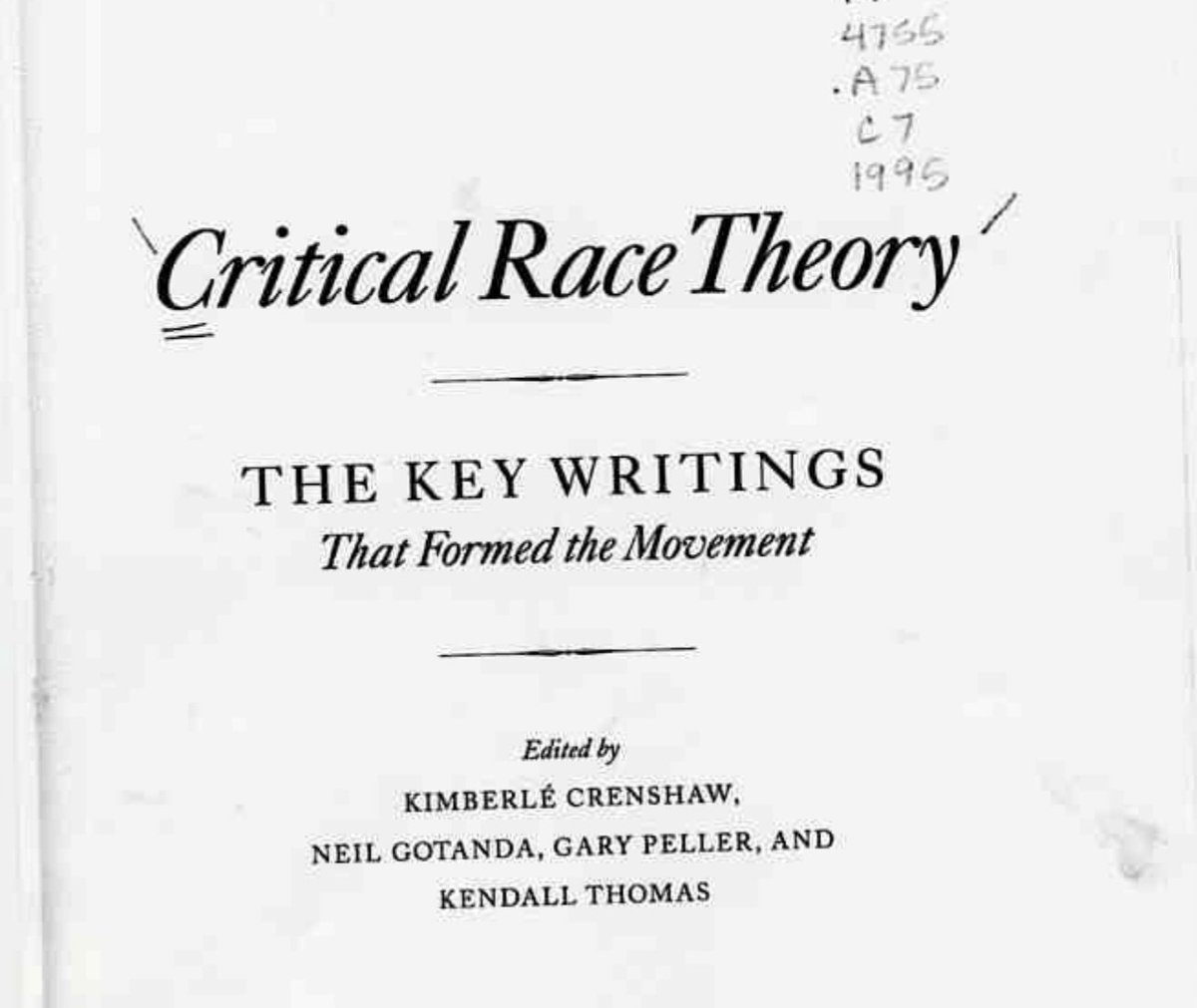THREAD For anyone interested in reading about Critical Race Theory (also the politicians who throw it around without ever reading about it) here are some good resources:
1. This is a good book covering much of history of CRT and how it has developed over the years.
1. This is a good book covering much of history of CRT and how it has developed over the years.
2. This is from 1995 edited by Kimberley Crenshaw & others and really interesting discussion about the value of whiteness, and persistence of whiteness as a property, and its links to national identity.
3. The theory traces its roots back to writings of freed slaves incl Frederick Douglass & Sojourner Truth but much of it was formed by sociologist W.E.B Du Bois who argued that the idea of race was created to provide a biological justification for oppression. That& #39;s the truth.
4. What govt is doing is to create a narrative that Critical Race Theory & hence idea of racism is faulty. Foucault argued that oppressive systems are maintained by certain forces in society deciding which discourses are legitimate to maintain their own privileged positions.
5. And while I share this, I also do believe in the idea of individual agency, accountability and responsibility. Systemic and structural racism and individual biases work hand in hand, bolstering each other, and recognising and being aware of both is critical.
6. This is what Crenshaw has to say: “Critical Race Theory is a way of seeing how fiction of race has transformed into concrete racial inequities. It rejects the belief that what’s in past is in the past & that the laws & systems that grow from that past are detached from it.”
7. What CRT does is to provide a more nuanced discussion abt racism using both historical & contemporary contexts. Trump& #39;s recent initiative to shut it down & now UK following in their footsteps shows how white supremacy acts as a gatekeeper to what stories are allowed to be told
8. Some ques that CRT attempts to address are: What is the significance of race in contemporary society? How does racism continue to function as a persistent force in society? What types of cultural artefacts reflect dominant culture’s perceptions of race? Source: Purdue Uni
9. Few other resources:
Harris, Cheryl. Whiteness as Property. Harvard Law Review 1993
Lipsitz, George. The Possessive Investment in Whiteness: How White People Profit from Identity Politics. TUP, 1998.
Williams, Patricia. Seeing a Color-Blind Future: The Paradox of Race. 1998.
Harris, Cheryl. Whiteness as Property. Harvard Law Review 1993
Lipsitz, George. The Possessive Investment in Whiteness: How White People Profit from Identity Politics. TUP, 1998.
Williams, Patricia. Seeing a Color-Blind Future: The Paradox of Race. 1998.
10. I am not saying that there are no issues with CRT but what critical race theory does is to encourage us to appreciate how races are constructed into hierarchies, with societal resources distributed unequally across this hierarchy.
11. As Tories are trying to propagate the myth of a post-racial society CRT reminds us that race might not always be the most imp determining factor of a given inequality but that analyses of inequality, of power & privilege are incomplete without a systematic discussion of race.

 Read on Twitter
Read on Twitter



